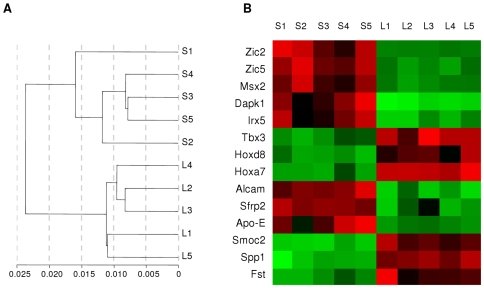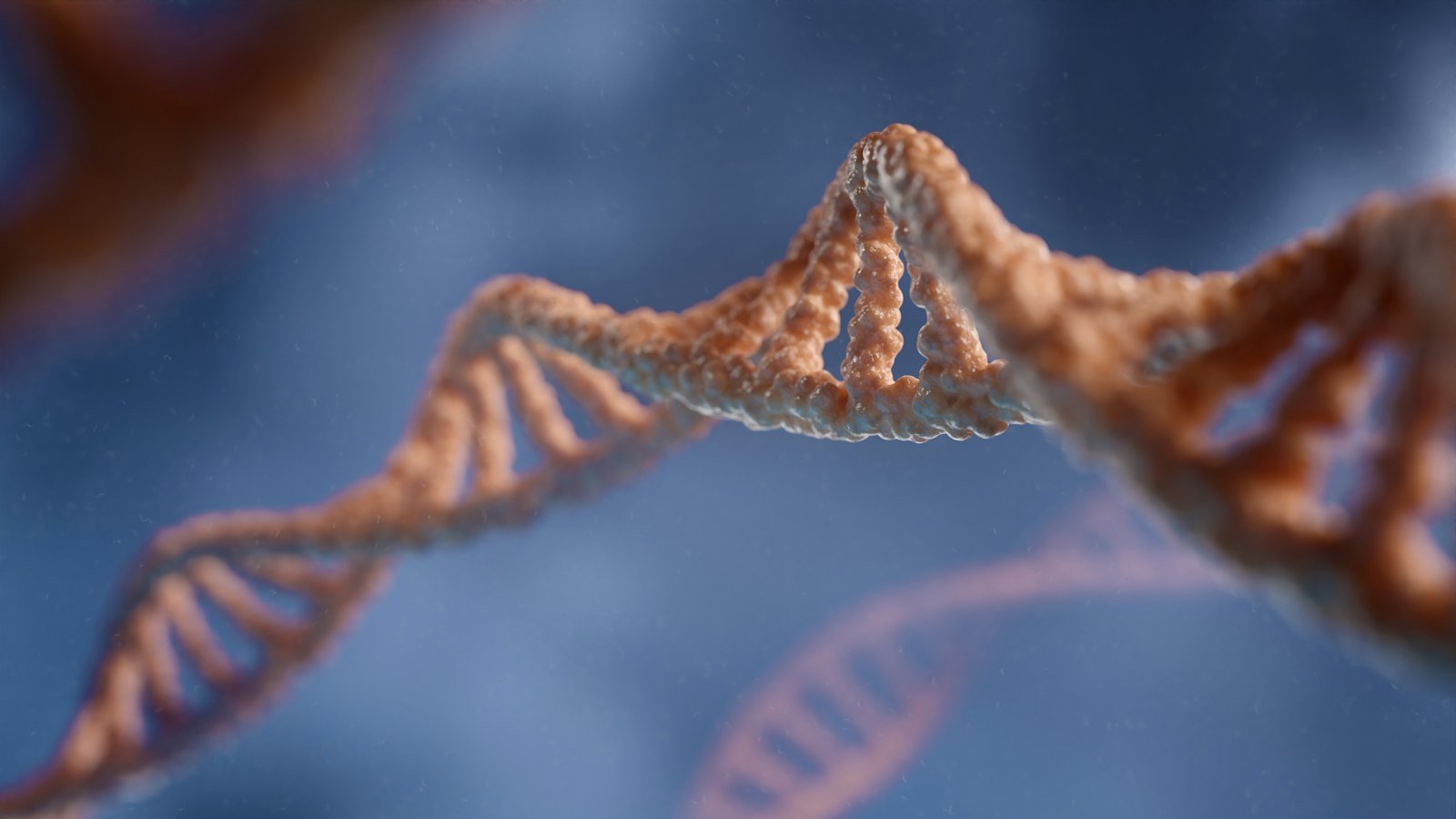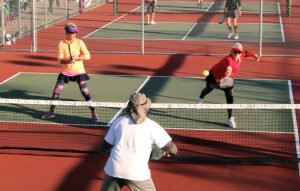In the world of pickleball enthusiasts, where agility, speed, and endurance reign supreme, one question continues to perplex both beginners and seasoned players alike: to what extent does genetics contribute to their fitness levels in this addictive sport? As we serve up a deep dive into the role of genetics in pickleball fitness, prepare to unravel the intricate dance between nature and nurture that shapes the athletic potential of pickleball players worldwide. From the innate predispositions to the influential genetic markers, get ready to explore the extraordinary genetic tapestry that can spell the difference between a mere novice and a fiercely competitive pickleball contender. Whether you’re a genealogy geek geek or simply fascinated by the fascinating interplay of genetics and sports, this article is bound to serve you an exhilarating ace of knowledge.
Table of Contents
- Role of Genetics in Pickleball Fitness
- The Influence of Genetic Variations on Athletic Performance
- Identifying Genetic Markers for Pickleball Fitness
- Maximizing Genetic Potential for Pickleball Success
- Tailoring Training Programs Based on Genetic Profiles
- Q&A
- In Conclusion

Role of Genetics in Pickleball Fitness
Genetics play a crucial role in determining an individual’s level of fitness in the sport of pickleball. It is widely accepted that certain genetic traits can influence factors such as stamina, strength, and agility, ultimately affecting the player’s performance on the court.
One such genetic factor is the presence of specific muscle fiber types. There are two main types of muscle fibers: slow-twitch and fast-twitch. Slow-twitch muscle fibers are more efficient at long-duration activities, contributing to endurance and aerobic capacity. On the other hand, fast-twitch muscle fibers enable quick bursts of power and speed. The ratio of these muscle fibers in an individual’s body can impact their ability to sustain prolonged rallies or execute explosive shots.
Moreover, genetic variations may influence an individual’s physiological response to training and exercise. Some people naturally have a higher oxygen-carrying capacity due to the presence of certain genes, providing an advantage in terms of cardiovascular efficiency. Others may possess genes that make them more prone to injury or muscle fatigue. These genetic predispositions can affect training adaptations, recovery time, and overall athletic performance in pickleball.
While genetics lay a foundation for pickleball fitness, it is important to note that environmental factors, lifestyle choices, and dedicated training also play significant roles. Regardless of genetic predispositions, one’s determination, discipline, and well-rounded training regimen are instrumental in maximizing their potential on the pickleball court.

The Influence of Genetic Variations on Athletic Performance
Athletic performance is a result of a multitude of factors, with one crucial aspect being our genetic variations. Our DNA plays a significant role in determining an individual’s natural abilities and potential in sports and physical activities. From endurance to strength and agility, these genetic variations contribute to the unique qualities and advantages that athletes possess.
1. Endurance: Some genetic variations can enhance an individual’s endurance capabilities. These variations may affect the oxygen-carrying capacity of red blood cells or the efficiency of energy production in the body, allowing athletes to excel in long-distance running, cycling, or swimming.
2. Muscle Strength: Certain genetic variations influence an individual’s muscle strength and power, contributing to their performance in activities requiring explosive movements. These variations can affect factors like muscle fiber type, hormone production, or muscle protein synthesis, giving athletes an edge in disciplines such as weightlifting, sprinting, or jumping.
3. Injury Resilience: Genetic variations also play a role in an athlete’s susceptibility to injuries and their ability to recover. Certain gene variations can impact the integrity of ligaments and tendons, bone density, or the body’s inflammatory response. This influences an athlete’s likelihood of experiencing injuries and their recovery time, ultimately affecting their overall performance on the field or court.
While genetic variations can shape athletic performance, it’s important to acknowledge that success is not solely determined by these factors. Nutrition, training, mindset, and environmental influences also play significant roles in an athlete’s journey. Nevertheless, understanding can provide valuable insights into individual strengths and areas for improvement, contributing to advancements in training methodologies and personalized performance optimization.

Identifying Genetic Markers for Pickleball Fitness
Genetic markers play a crucial role in determining an individual’s predisposition to certain traits and abilities. The sport of pickleball, being a highly dynamic and physically demanding activity, requires a certain level of fitness and agility for optimal performance. Scientists and researchers are now delving into the world of genetics to unravel the mystery behind what makes some individuals naturally fitter and more skilled in the game.
Through extensive studies and analysis, researchers have identified potential genetic markers that can be correlated with pickleball fitness. These markers hold the key to understanding an individual’s inherent abilities, such as endurance, reaction time, muscle strength, and flexibility, which are vital components of pickleball excellence. By pinpointing these genetic markers, players can gain insight into their strengths and weaknesses, enabling them to tailor their training programs and strategies accordingly.
To help the pickleball community make sense of the complex genetic data, a comprehensive list of the identified markers and their significance is being compiled. This list will serve as a valuable resource for players of all skill levels, coaches, and trainers, allowing them to focus their efforts on improving the areas that contribute most to pickleball fitness. With ongoing research and advancements in genetic technology, the hope is that in the near future, we could potentially unlock the secrets hidden within our DNA and revolutionize the way players prepare, train, and excel in the exhilarating sport of pickleball!

Maximizing Genetic Potential for Pickleball Success
When it comes to pickleball, genetics can play a significant role in determining your potential for success on the court. While countless hours of practice and dedication are undoubtedly crucial, understanding and harnessing your genetic strengths can give you an extra edge.
To maximize your genetic potential for pickleball success, consider the following tips:
- Identify your natural abilities: Pay attention to your innate skills and strengths. Are you naturally agile, quick, or strong? Recognizing these abilities can help you tailor your training regimen to further enhance them.
- Create a customized training plan: Work with a pickleball coach or a sports trainer to create a personalized training plan based on your genetic predispositions. This plan should focus on optimizing your natural abilities while also addressing any areas for improvement.
- Emphasize the importance of recovery: Your genetics can influence your recovery time and ability to bounce back after intense training sessions. Ensure you prioritize rest, proper nutrition, and sleep to allow your body to repair and recharge.
While genetics alone do not guarantee success in pickleball, harnessing your natural abilities and understanding how to optimize them can undoubtedly elevate your game. Remember, your genetic potential is just the starting point – with dedicated training and a strategic approach, you can unlock your pickleball prowess!
Tailoring Training Programs Based on Genetic Profiles
In recent years, advancements in genetic research have shed light on the influence of our DNA on various aspects of our lives, including our response to training programs. Tailoring training programs based on individual genetic profiles is a cutting-edge approach that holds great potential in optimizing athletic performance.
By analyzing an individual’s genetic profile, trainers and coaches can gain valuable insights into their unique physiological characteristics and potential strengths and weaknesses. Armed with this information, they can design training programs that specifically target areas that may benefit from additional focus or modification. This individualized approach can significantly enhance training efficiency and help athletes reach their full potential.
There are several key areas in which genetic profiling can guide the tailoring of training programs:
- Energy metabolism: Genetic variations can influence an individual’s ability to utilize different energy systems during exercise. By understanding an athlete’s genetic predisposition, trainers can personalize training programs to maximize energy production and utilization, thereby enhancing endurance and performance.
- Recovery: Genetic variations can also impact an individual’s ability to recover from physical exertion and injury. By identifying genetic markers associated with improved recovery, trainers can implement targeted strategies to optimize an athlete’s ability to bounce back faster.
- Injury susceptibility: Certain genetic variations can make individuals more prone to certain types of injuries. By identifying these genetic markers, trainers can develop preventive measures and modify training techniques to minimize the risk of injury.
Incorporating genetic profiling into the design of training programs represents an exciting frontier in sports science. By tailoring programs based on individual genetic profiles, athletes can embark on a truly customized journey towards achieving their athletic goals.
Q&A
What is pickleball fitness?
Pickleball fitness refers to the physical conditioning required to excel in the fast-paced sport of pickleball. It involves a combination of endurance, strength, agility, and flexibility training.
How does genetics play a role in pickleball fitness?
Genetics can influence an individual’s natural abilities, such as muscle fiber composition and aerobic capacity, which can have an impact on pickleball performance. However, it’s important to note that while genetics can provide a foundation, training and effort are crucial for success in the sport.
Are certain genetic traits more advantageous in pickleball fitness?
Some genetic traits, such as fast-twitch muscle fibers and a high anaerobic threshold, may provide certain advantages in pickleball fitness. However, pickleball is a dynamic sport that requires a combination of skills, including strategy and agility, which can be developed through training regardless of genetic predisposition.
Can genetics determine an individual’s potential in pickleball?
Genetics can contribute to an individual’s potential in pickleball by providing certain advantages in strength, speed, and endurance. However, it’s important to remember that talent alone is not enough to excel in the sport; dedicated training and skill development are essential.
What are some training strategies for improving pickleball fitness?
To improve pickleball fitness, a well-rounded training program should incorporate endurance exercises, strength training, agility drills, and flexibility exercises. It’s also advisable to work with a qualified trainer who can tailor the training program to individual goals and abilities.
Can genetics limit or hamper a person’s pickleball fitness potential?
While genetics can influence an individual’s starting point, they do not necessarily limit one’s potential in pickleball fitness. With proper training, anyone can improve their fitness level and excel in the sport. It’s important to focus on developing skills, maximizing strengths, and working towards personal goals.
Should individuals with certain genetic traits approach pickleball fitness differently?
Individuals with specific genetic traits, such as those predisposed to certain types of muscle fibers, may benefit from training programs that emphasize the development of their natural strengths. However, overall fitness training for pickleball remains important for all players, regardless of genetic factors.
In Conclusion
As we lace up our shoes and pack away our paddles, it becomes clear that the role of genetics in pickleball fitness extends far beyond the surface level. It weaves itself into the very fabric of our game, embedding its influence in our every swing, every pivot, and every relentless pursuit of victory. Though pickleball may seem like a simple sport, genetics unveils its intricate complexities, determining the limits of our endurance, the power behind our shots, and the agility in our reflexes.
Yet, we must tread carefully upon the path of genetics, for it is not the sole victor in this realm of athleticism. Environmental factors, training regimens, and sheer determination all dance into the equation, delicately intertwining with our genetic predispositions. Nature alone cannot guide us to the pinnacle of pickleball excellence; it requires the harmonious synchrony of nurture and nature, working together to sculpt our bodies into the finest instruments of sport.
As we embark on this journey of understanding the role genetics plays in our pickleball performance, let us not succumb to the notion that genetic limitations are insurmountable walls blocking our path to greatness. Rather, let us embrace the knowledge of our genetic makeup with open arms and malleable minds, using it to inform and refine our training strategies. By understanding our genetic strengths and weaknesses, we gain insight into the areas we must focus on, the nuances we must sharpen, and the resiliency we must foster to transcend our genetic boundaries.
So, fellow pickleball enthusiasts, let us forge ahead armed with a newfound appreciation for the role genetics plays in our athletic pursuits. Embrace the gift of self-awareness, for it allows us to adapt, to evolve, and to challenge the notion that our genetic blueprint is an immovable force. Together, let us push the boundaries, break free from the constraints nature has bestowed upon us, and rise to the pinnacle of pickleball achievement. May our pursuit of excellence be fueled by the understanding that genetics may be a formidable opponent, but it is one that we are determined to conquer.
As an affiliate, my content may feature links to products I personally use and recommend. By taking action, like subscribing or making a purchase, you’ll be supporting my work and fueling my taco cravings at the same time. Win-win, right?
Want to read more? Check out our Affiliate Disclosure page.




